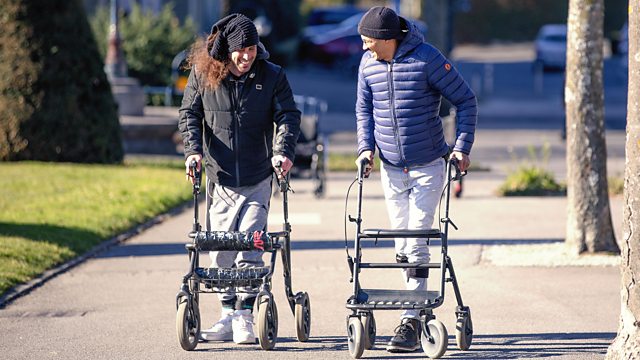Neurons that restore walking in paralysed patients
Neurons that restore walking in patients with spinal cord injuries have been identified. Also, discovery of a black hole and how of buildings can help reduce climate change.
Researchers have identified which neurons, when electrically stimulated, can restore the ability to walk in paralysed patients. Professor Jocelyne Bloch, Associate Professor at the UniversitΓ© de Lausanne, tells Roland how the technology works.
Astronomers have discovered the closest black hole to Earth. Researchers led by Kareem El-Badry, astrophysicist at Harvard University, identified the celestial body when they spotted a Sun-like star orbiting a dark, dense object.
The origins of eels have been mystifying scientists for centuries. Though the Sargasso Sea has been their presumed breeding place for 100 years, there has been no direct evidence of their migration – until now. Ros Wright, Senior Fisheries Technical Specialist at the Environment Agency, shares how researchers finally pinned down these slippery creatures.
This week, a new report from the UN Environment Programme reveals that carbon dioxide emissions from building operations have reached an all-time high. Insaf Ben Othmane, architect and co-author of the report, talks through the risks and opportunities this poses for Africa and why there is still hope for the future.
Producer: Roland Pease
Assistant Producer: Sophie Ormiston
(Photo: Patient with complete spinal cord injury (left) and incomplete spinal cord injury (right) walking in Lausanne. Credit: Jimmy Ravier/NeuroRestore)
Last on
More episodes
Broadcasts
- Thu 10 Nov 2022 20:32GMTΒι¶ΉΤΌΕΔ World Service Online, Americas and the Caribbean, UK DAB/Freeview & Europe and the Middle East only
- Thu 10 Nov 2022 21:32GMTΒι¶ΉΤΌΕΔ World Service Australasia, South Asia, News Internet & East Asia only
- Fri 11 Nov 2022 04:32GMTΒι¶ΉΤΌΕΔ World Service Australasia, Americas and the Caribbean, South Asia & East Asia only
- Fri 11 Nov 2022 13:32GMTΒι¶ΉΤΌΕΔ World Service
- Fri 11 Nov 2022 18:32GMTΒι¶ΉΤΌΕΔ World Service East and Southern Africa & West and Central Africa only
- Sat 12 Nov 2022 17:32GMTΒι¶ΉΤΌΕΔ World Service News Internet
Podcast
-
![]()
Science In Action
The Βι¶ΉΤΌΕΔ brings you all the week's science news.


